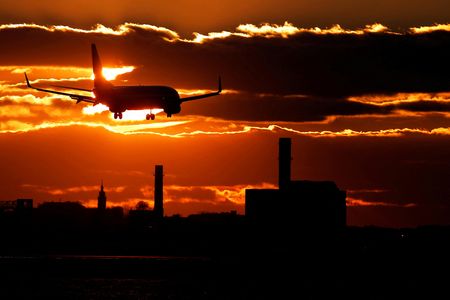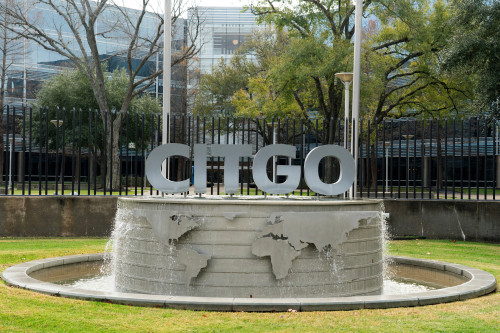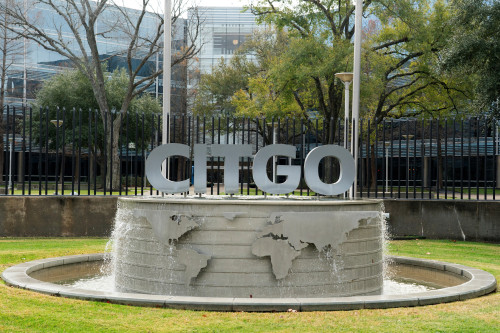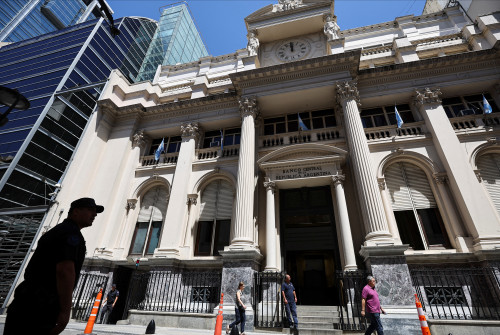By Joanna Plucinska, Aditi Shah and Tim Hepher
ISTANBUL (Reuters) – Global airlines on Monday more than doubled their forecast for the industry’s 2023 profit but warned delays in getting planes to cope with rising demand could dampen their post-pandemic recovery.
“The pandemic years are behind us and borders are open as normal,” Willie Walsh, head of the International Air Transport Association (IATA), told IATA’s annual summit of some 300 carriers.
IATA boosted its industry profit forecast to $9.8 billion from $4.7 billion cheered by strong travel demand and an easing in oil prices.
Revenue is expected to grow by 9.7% to $803 billion, inching closer to 2019’s pre-pandemic level of $838 billion.
But slender profit margins of 1.2% mean repairing damaged balance sheets and offering sustainable returns on investments will continue to be a headache for some airlines, Walsh said.
He said airlines on average make $2.25 per passenger, “which is less than the price of a cup of coffee, a subway ticket”.
The profit forecast, raised from one given in December, reflected a boost in Europe, despite a wave of strikes.
Airlines have in recent months reported strong results as they prepare for a busy summer season, with travel demand showing no sign of flagging despite peaking inflation.
Pressure from oil prices has also eased this year.
But holding their annual gathering a day after oil producers agreed to limit supply, airlines were warned that one of their biggest costs could climb higher again in coming months.
The prospect of higher prices has “increased a lot” as a result of Sunday’s OPEC+ deal, Fatih Birol, executive director of the International Energy Agency, told delegates.
Airlines saw their industry grind to a near-halt when the spread of COVID-19 closed borders in early 2020.
Swelling demand and a shortage of aircraft, parts and labour have all contributed to higher air fares since the pandemic.
But these have started to moderate as capacity comes back online, Qantas CEO Alan Joyce said. IATA says fares have not gone up in real terms since 2019.
Cargo continues to lag, however, with volume expected to be 57.8 million tonnes in 2023 versus 2019’s pre-pandemic level of 61.5 million tonnes due to a slowdown in global trade.
FRUSTRATION WITH PLANEMAKERS
The head of the world’s largest airline said there were mixed economic signals for carriers in the United States.
“We’re probably in either a mild recession or moderate economy. We can see that,” United Airlines CEO Scott Kirby told reporters. “I think actually, in the U.S., we’re in a business recession, and the consumer has just been strong.”
IATA’s annual meeting allows airlines to discuss common initiatives on regulatory matters such as energy transition, as well as do business on the sidelines and put public pressure on airports and other suppliers.
Many airline leaders voiced anger over an average wait of six months to receive new planes. “Airlines are beyond frustrated. A solution must be found,” IATA’s Walsh said.
In an unusual move, they agreed to ask IATA – led by the outspoken former British Airways boss – to intervene directly with planemakers to make sure their frustrations are heard, though without delving into individual contracts.
Airbus and Boeing have said supply chains are to blame, while warning there is no immediate fix to supply constraints.
(Reporting by Joanna Plucinska, Aditi Shah, Tim Hepher; editing by Tim Hepher and Jason Neely)





